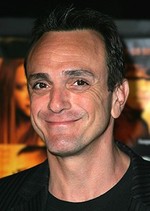Hank Azaria, Broadway.com Buzz:
Q: So, make the case that Sarnoff didn’t totally screw over Philo Farnsworth, the young guy who invented television.
A: It’s actually an easy case to make. First of all, the truth is that it was the efforts of many, many men that made television happen. It really was! Farnsworth had a piece of it, but unto himself, he wouldn’t have gotten there without the efforts of a lot of people—including Sarnoff, who created an environment in which other scientists could do what they did. Even if you made the argument that Farnsworth had [television] completely himself, it was Sarnoff’s vision of what to do with it that was unique. Literally, he invented what we know today as television watching and television networks—for better or for worse.
It is arguably true that "many, many men" made television happen. But there was a flex point — that "breakthrough of epic proportions," when the technology went from "parts to particles" — that is the pivotal moment in the whole undertaking. That breakthrough happened in the mind and hand of Philo T. Farnsworth. Farnsworth didn’t have just "a piece of it. He had the piece that made the whole thing possible. Everything that came after — NBC-TV, Uncle Milty, Lucy, Neil Armstrong’s giant leap — all stem from that breakthrough.
It is important that such moments are not lost in legend, because these are the moments that transform our culture.
There is a natural conflict here, between the idea that television was so complex that it could only be delivered by a corporation -v- the contribution of individuals. It’s not surprising that Azaria would defend the corporate angle, since that’s the character he’s playing.
